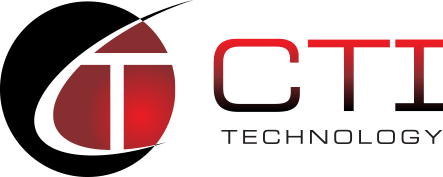Key Innovations and Competitive Advantages
Artificial intelligence is changing how you run your business, serve customers, and manage your time.
AI now helps small businesses work more efficiently, save money, and make smarter daily decisions. What once felt out of reach is a tool you can use to compete and grow.
Tasks that used to take hours, like inventory management or financial planning, are now quicker and easier with smart software.
You can even boost your marketing and customer support with AI, allowing you to focus on what matters most—running your business.
If you want to stay ahead, understanding how to use AI can give you a real edge in today’s crowded market.
Key Takeaways
- AI helps you streamline business operations
- It can improve customer engagement and support
- Using AI allows you to make better decisions and grow
The Rise of AI in Small Business
Small businesses are adopting artificial intelligence at a rapid pace as technology becomes more accessible and affordable.
AI is driving changes in how you work, serve your customers, and grow your business.


Adoption Trends Across Industries
AI adoption among small businesses has more than doubled since 2023.
According to recent data, about 39% of small businesses are now using some type of AI solution in their workflow.
This growth can be seen in retail, finance, health care, and professional services.
Businesses use AI tools to automate marketing, manage inventory, and improve customer service.
Younger owners, especially Millennials and Gen Z, tend to adopt new technology faster than older generations.
Different industries remain at different points on the adoption curve.
As technology spreads, you will likely see even more tools available for your sector.
Key Drivers of AI Integration
Several key factors push you and other small business owners to bring AI into your daily operations.
One major driver is the need to save time and cut costs.
Tasks like scheduling, bookkeeping, and responding to customer questions can now be handed over to AI-powered apps and chatbots.
Another big driver is the need for better data analysis.
Smart software can help you recognize patterns in sales, customer feedback, and market trends much faster than manual processes.
As more AI options appear on the market, those tools are also becoming easier to use, even if you don’t have technical experience.
Increased competition is encouraging small business owners to adopt AI.
By improving efficiency and making faster decisions, you can stay ahead of larger firms that may have more resources.
For more about these trends, see how AI transforms the small business workplace.
Changing Business Models
AI is changing how you manage your company, structure your team, and run your daily operations.
Many small businesses can now do more with fewer employees.
This lets you focus on skills that need a human touch while letting software handle routine or repetitive work.
You can also reach customers in new ways.
For example, you might use AI to create personalized marketing messages or offer 24/7 online support.
This helps you serve more clients, even outside of regular business hours.
Teams today are more data-driven, using real-time analytics to guide decisions as circumstances change.
Modern business models are becoming more flexible.
You can launch and grow a business with smaller teams, access new markets, and experiment with new products.
Learn more about how AI is changing small business and entrepreneurship.
Transforming Operations and Productivity
AI lets you complete more tasks in less time by making many business activities simpler and quicker.
You can use AI-powered tools to automate daily jobs, improve how inventory moves, and keep projects on track.
Automating Routine Tasks
You spend a lot of time on repetitive chores like answering emails, processing invoices, and scheduling meetings.
You can automate these tasks with AI, freeing up time for more important work.
Most email platforms and calendars now offer features that can sort messages and set appointments automatically.
Many small business owners use AI chatbots to answer common customer questions.
This means you deliver faster service without needing extra staff.
Document management systems can even scan and file records, so you spend less time on paperwork and more time growing your business.
Automation makes it easy to keep up with everyday demands and focus your energy on decision-making and customer relationships.
As you automate workflows, you reduce the chance of human error and make your operations run more smoothly.
AI processes data quicker than people, so you can finish daily jobs in less time.
Optimizing Supply Chains
You rely on steady supply chains to meet customer needs.
AI helps predict product demand, spot shipment issues, and manage inventory levels.
By studying sales data and market changes, AI tools can suggest when to restock or scale back orders.
AI-driven logistics can track where shipments are at any time.
You know exactly when items will arrive, which lets you confidently plan ahead.
These systems can detect delays or disruptions early, so you can quickly find solutions and avoid stockouts.
A growing number of small businesses are using AI-powered platforms to manage suppliers and shipping costs.
Some tools use machine learning to scan prices from different vendors in real time.
This helps you save money and keep shelves filled with the right products.
Enhancing Project Management
You can keep projects moving forward more efficiently using AI for project management.
These tools help assign tasks, track progress, and remind team members of deadlines.
Many platforms now use AI to suggest the best ways to schedule work based on team workload.
AI project management solutions can quickly analyze past projects to spot patterns and avoid common problems.
If a deadline is at risk, the software can alert you so you can make changes in real time.
This is especially useful if your team works in different locations or time zones.
AI can also help you break down tasks into steps and show which jobs depend on others.
With these insights, you organize your projects better and avoid costly delays.
Your team is more productive and projects finish on time more often.
For detailed examples, see how AI is transforming small business operations.
AI-Powered Marketing and Customer Engagement
AI allows you to better understand your customers, predict their needs, and interact more efficiently.
Tools like machine learning and large language models greatly impact how you connect and build loyalty with your audience.
Personalizing Customer Experience
AI lets you provide a more personal experience to each customer.
Automated data analysis allows you to recommend products, send targeted emails, and adjust website content based on individual preferences.
This level of personalization can increase engagement and lead to more sales.
You can segment your audience into smaller groups with similar habits or interests using AI-driven platforms.
This lets you design messages that feel relevant to each group.
Features like dynamic content and automated product suggestions use browsing history and purchase behavior to customize the shopping journey.
A survey by CleverTap shows that organizations using AI for customer engagement have seen higher conversion rates and stronger brand loyalty.
As your business grows, these personalized approaches help you reach more customers without losing the human touch.
Learn more about personalization trends in AI-powered customer engagement.
Advanced Data Analytics
AI helps you make sense of huge amounts of data from different sources.
You can quickly spot trends, understand customers’ needs, and decide where to focus your efforts.
AI-enabled analytics can combine information from sales, social media, and customer support to uncover patterns you might miss.
With machine learning, you can predict customer behavior, find new market opportunities, and prevent issues before they affect your business.
For example, AI systems can flag when a customer might stop buying from you, allowing you to take action to retain them.
These technologies do not just save time—they also make your decisions more precise.
Businesses that invest in AI for analytics are finding new ways to innovate and compete in a crowded market.
For more details, see how AI transforms analytics for marketing in this overview of AI in marketing.
Conversational AI Solutions
Conversational AI lets you engage with customers 24/7.
These solutions include chatbots, virtual assistants, and automated email replies.
Chatbots can answer common questions, handle complaints, and guide shoppers through buying, improving efficiency and satisfaction.
With improvements in natural language processing, chatbots sound more human and understand context better.
You can use these systems to book appointments, gather feedback, and resolve problems faster than ever.
This cuts response times and reduces the need for extra staff.
Most small businesses using AI-driven chat tools report higher efficiency and happier customers, as noted in a trends report by Salesforce.
As technology grows, conversational AI becomes a valuable tool for building trust and smoothing customer engagement.
Human Resources and Talent Management with AI
AI is transforming how you handle hiring and employee management.
Smart automation saves time, boosts accuracy, and creates a better experience for everyone involved.
Streamlining Recruitment Processes
Using AI in recruiting makes finding the right talent faster and more precise.
AI tools screen resumes, match skills, and even conduct initial interviews using chatbots.
This reduces the hours you spend sorting through applications and helps you focus on the most qualified candidates.
You benefit from more objective selections because AI systems can recognize skills and experience, reducing human bias.
Advanced platforms also use data-driven insights to improve job postings, making sure your listings attract the best people.
Predictive analytics helps you gauge if a candidate is a good fit for your company culture and needs.
Small businesses can level the playing field with larger competitors by adopting these solutions.
You can reach a wider pool of applicants and fill positions faster.
To learn more, see how AI is redefining talent management in HR.
Employee Onboarding Automation
After hiring, onboarding can be complex and time-consuming.
AI can automate repetitive onboarding tasks, like paperwork completion, compliance checks, and providing new hires with essential company information.
With digital onboarding assistants, you give new employees a structured way to complete their first-day requirements.
These tools offer interactive guides, training modules, and quick answers to common questions.
This helps new staff get up to speed efficiently and reduces the administrative workload for your team.
Automating onboarding also means fewer manual errors and more consistent processes for every employee.
For details on how AI-driven onboarding technology can boost efficiency, see how companies use AI for seamless onboarding and engagement.
Improving Financial Management
AI gives your small business tools to track money, spot errors, and plan ahead.
These tools help you avoid problems like missed payments, fraud, and running out of cash.
AI-Driven Accounting
AI-powered accounting software can automate many bookkeeping tasks.
It can sort receipts, match invoices, and update your general ledger.
This means you spend less time on manual entry and more time running your business.
Modern AI tools also learn your spending habits.
They can flag unusual expenses and help you stick to your budget.
By reducing human error, your financial records become more accurate.
Platforms like QuickBooks and Intuit Assist now offer AI features that simplify tasks, making accounting less stressful for business owners.
These systems can recommend ways to save money or claim deductions.
With AI-driven financial management platforms, you can keep track of your business finances in real time.
Fraud Detection
AI improves your ability to catch fraud quickly. It reviews transactions as they happen, looking for anything that seems out of place.
For example, it can spot double payments or strange charges in your account. Using advanced pattern recognition, AI can compare past transactions to current ones.
If it sees something unusual, it will alert you right away. This can prevent losses before they add up.
Automated fraud detection also limits the time you spend checking bank statements manually. It reduces the risk of missed warning signs and makes it easier to secure your business finances.
Key benefits of AI fraud detection include:
- Faster alerts
- Higher accuracy
- Ongoing monitoring
Predictive Cash Flow Analysis
AI models help you see if you’ll have enough cash in the future. They examine your income and expenses, recognizing trends that let you stay ahead of shortfalls.
These systems can predict when money might get tight, so you can plan budget changes early. Cash flow prediction uses real-time data, such as outstanding invoices and sales patterns.
It also considers seasonality or slow periods, giving a more realistic view of your financial outlook. Many business owners now use AI-powered budgeting and cash flow management to make informed decisions.
These tools can recommend the best times to invest, pay bills, or seek outside funding. Simple dashboards and alerts keep you updated, so you always know where your finances stand.
Customer Support and Service Evolution
AI is changing how your business helps customers and solves their problems. Faster responses, smarter tools, and helpful automation are key to your daily support.
Chatbots and Virtual Assistants
AI-powered chatbots and virtual assistants can answer questions night and day. These systems respond quickly and never tire, offering basic help and guiding customers to the right answers.
You can use these assistants on your website, in apps, and even on social media. They help automate common questions about orders, returns, and store hours, freeing up your staff to handle more complex issues.
Many small businesses now use AI chatbots for first-contact customer support so that real people can focus on problems that need a personal touch. Recent AI also allows chatbots to learn from each conversation, getting better over time.
Some new tools can even recognize customer emotions or predict what people need next, adding a personal feel.
Key Features:
- 24/7 Availability
- Instant answers to FAQs
- Can learn from each chat
- Handles high conversation volume
- Supports multiple languages
Automated Ticketing Systems
AI has also levelled up ticketing systems. AI can create and sort tickets automatically when a customer has an issue.
This means that requests are categorized, assigned a priority, and sent to the right team member—all without human effort. AI steering helps you solve cases faster and keeps tasks from falling through the cracks.
Businesses using AI-driven ticketing report better productivity and higher customer satisfaction. Modern ticketing platforms often include dashboards so you can track progress.
You can see which issues arise most, who needs help fast, and how quickly your team solves problems.
Benefits:
- Faster case resolution
- Reduced manual sorting
- Improved team productivity
- Easy performance tracking
- Better customer follow-up
AI Tools and Platforms for Small Enterprises
AI tools are making it easier for you to manage and grow your business. Today, you can find platforms that automate tasks like data entry, invoicing, and inventory checks.
This saves you hours every week and lets you focus on work that matters most. Many small businesses use AI-powered analytics to study customer behavior and spot trends.
These tools help you make data-driven decisions so you can adjust your products or services to what your customers need. Some tools even send alerts if something important changes in your sales or inventory.
Here are a few types of AI tools you might find useful:
- Chatbots for fast customer support
- Business plan generators like Upmetrics AI Business Plan Generator
- AI marketing assistants that suggest email topics
- Inventory management platforms
- Automated invoicing and billing tools
| AI Tool Type | What It Does | Example |
|---|---|---|
| Business Plan Generator | Writes and improves business plans | Upmetrics |
| Chatbot | Answers customer questions 24/7 | Various platforms |
| Analytics Platform | Tracks trends and customer behavior | Popular analytics AI |
| Inventory Management | Monitors and reorders stock levels | Inventory AI tools |
Adopting the right AI platform can help you grow faster and spend less time on routine jobs. To learn more about how these tools transform small companies, you can read this guide to small business AI applications.
Overcoming Challenges in AI Adoption
AI adoption brings unique obstacles for small businesses, such as limited budgets, the need for strong data protection, and the challenge of finding employees with the right skills.
Budget Constraints
Small businesses often face high initial costs when considering AI tools. The price of licenses, upgrades, and integration can be too much for tight budgets.
It helps to start with low-cost or open-source AI software to limit spending upfront. You can also spread costs out by choosing subscription plans or pay-as-you-go models rather than buying everything at once.
Some vendors offer discounts or special packages for small firms. Focusing on one improvement at a time keeps spending in check and shows quick results.
A phased approach lets you measure the impact of early projects before spending more. Government grants and local programs sometimes help with costs for digital upgrades.
Planning your investments gives you control and reduces the risk of wasted money. For more insights, check out this guide on overcoming common challenges in AI adoption for small businesses.
Data Privacy Concerns
When using AI, you often handle sensitive customer and business data. This creates risks if data is not protected or if privacy rules are ignored.
You must follow data protection laws like GDPR and always use secure storage methods. Encrypting data and limiting access to only trusted staff helps protect your information.
Regular audits ensure data is handled safely. Using AI tools that follow strict privacy standards and working with vendors who value confidentiality lowers your risk further.
Write clear privacy policies and explain to your customers how their data is used. This builds trust.
To protect against breaches, invest in strong cybersecurity and keep your team updated on best practices. For more details, visit this article about barriers to AI adoption such as data privacy.
Skill and Training Gaps
AI systems can be complex and require new knowledge. Many small businesses do not have staff with AI experience, making it hard to set up and use these tools.
Investing in training helps your team learn AI basics and build confidence. Workshops, online courses, and vendor-led training are good options.
Having a staff member who leads AI efforts encourages others to learn and helps solve common problems quickly. Some businesses choose to partner with consultants or hire freelance experts.
This can be a way to cover skill gaps while you build your team’s own abilities. Ongoing learning keeps you up to date as AI technology changes.
Read more in the article on the challenges of adopting AI in business and how training helps.
Ethical Considerations for Small Businesses
When using AI in your business, it is important to consider how these tools impact real people. Your approach should be careful and responsible to avoid problems and maintain your reputation.
Bias and Fairness
AI can make decisions fast, but those decisions are not always fair. Your AI can pick up and repeat real-world biases if it is trained on old or limited data.
This may cause hiring tools, chatbots, or product recommendations to treat certain groups unfairly. It is important to check your AI systems for bias on a regular schedule.
Use a checklist to review training data, test for biased results, and update as needed. For example:
| Step | Description |
|---|---|
| Data Review | Check for diverse and balanced data sources. |
| Outcome Test | Test results with different user groups. |
| Ongoing Audit | Update and monitor for unwanted patterns. |
Following these steps keeps your system fair and reduces the risk of harming your customers or facing public backlash. Many small businesses struggle with fairness, so making an active effort matters.
Transparency and Trust
Customers and employees expect to know when and how AI makes decisions that affect them. Clear communication about AI use builds confidence and trust in your company.
You should create a simple description of how your AI systems work and share it with your team and customers. If you use AI in customer service, label these interactions clearly.
Provide easy-to-read policies and clarify how people can ask questions or raise concerns about automation. Transparency also involves reporting mistakes and explaining how your business will fix them.
Setting up clear policies supports transparency and helps your business follow fast-evolving rules for responsible AI use. Staying open with your audience increases loyalty and reduces confusion.
The Future Landscape of Small Business with AI
As AI technology advances, you will likely see more opportunities for your business to improve efficiency.
From customer service chatbots to smart scheduling tools, AI can help you save time and focus on important tasks.
You can use AI to analyze sales data, making understanding what your customers want easier.
This can help you make more informed decisions and adjust your products or services as needed.
Many small businesses report that AI has made daily operations smoother and more efficient.
For example, automating repetitive jobs lets your team concentrate on new ideas and customer interactions.
Learn more about how AI is improving small business operations.
Here are a few ways AI is shaping the small business landscape:
- Automation: AI handles emails, billing, schedules, and more.
- Customer Service: Chatbots answer questions at any time.
- Data Analysis: AI finds patterns in sales and customer feedback.
- Marketing: Tools suggest personalized messages for your audience.
Younger business owners often find it easier to adapt to new technologies.
This shift creates a workplace where you may feel encouraged to try AI-powered solutions for daily challenges.
For more details about these workplace changes, read about the impact of AI on small businesses.
| Feature | Example Benefit |
|---|---|
| Automated billing | Faster payment processing |
| Smart inventory | Fewer out-of-stock items |
| Chatbots | 24/7 customer support |
| Forecasting tools | Better business planning |
Why Is CTI Technology The Best Choice For IT Services In The Chicagoland Region?






















